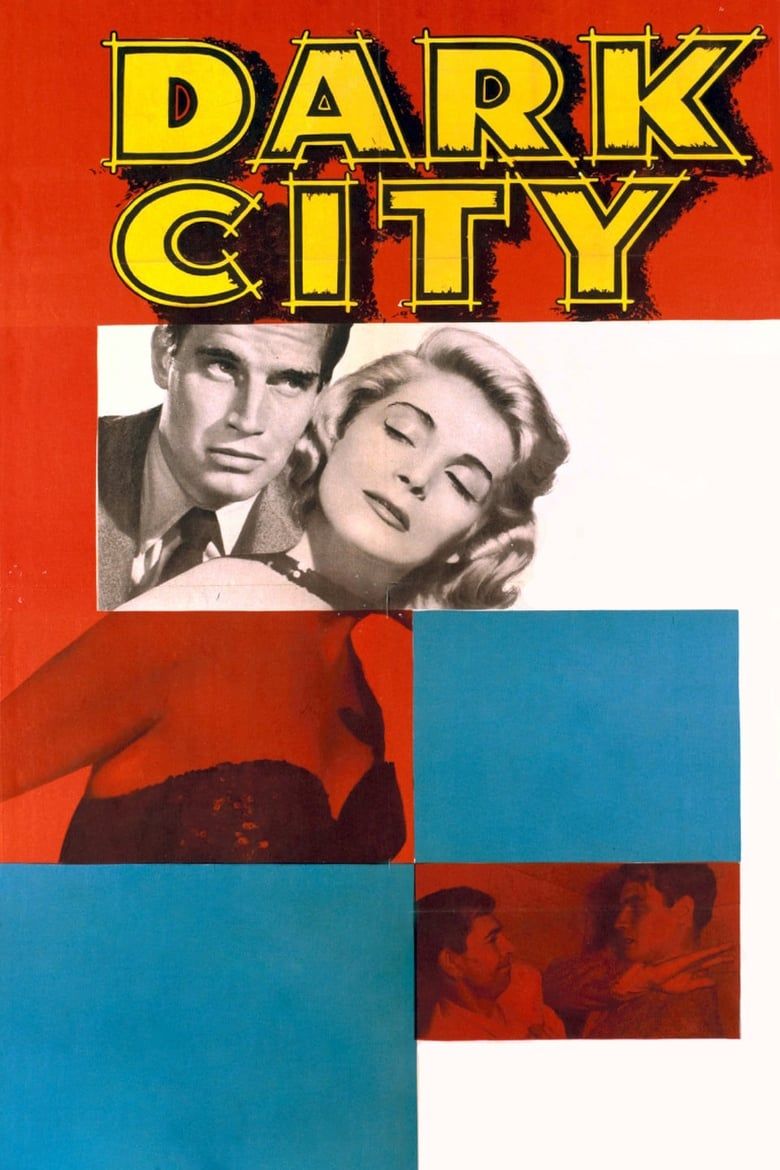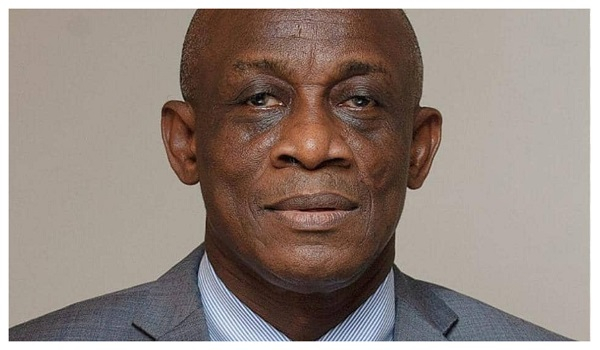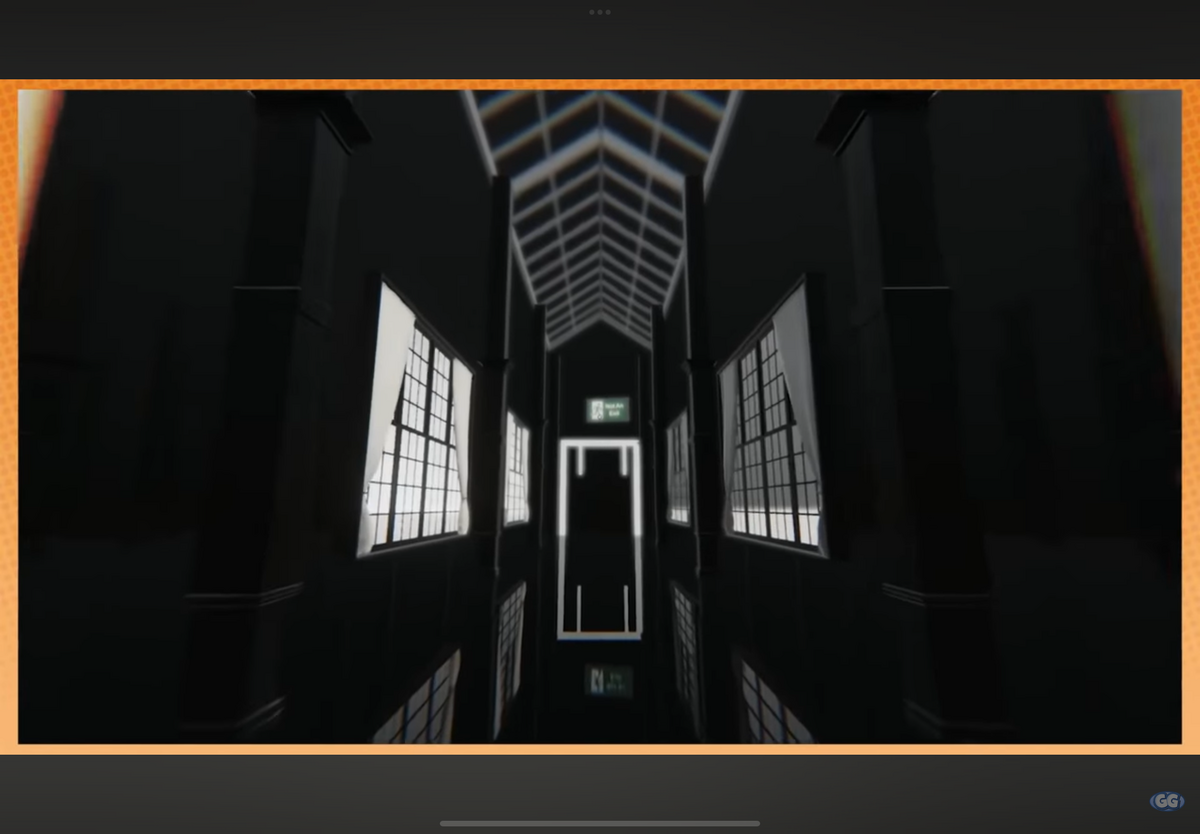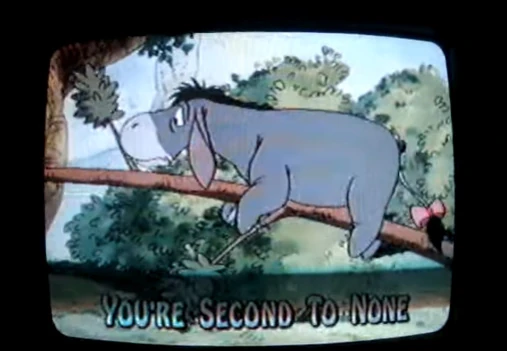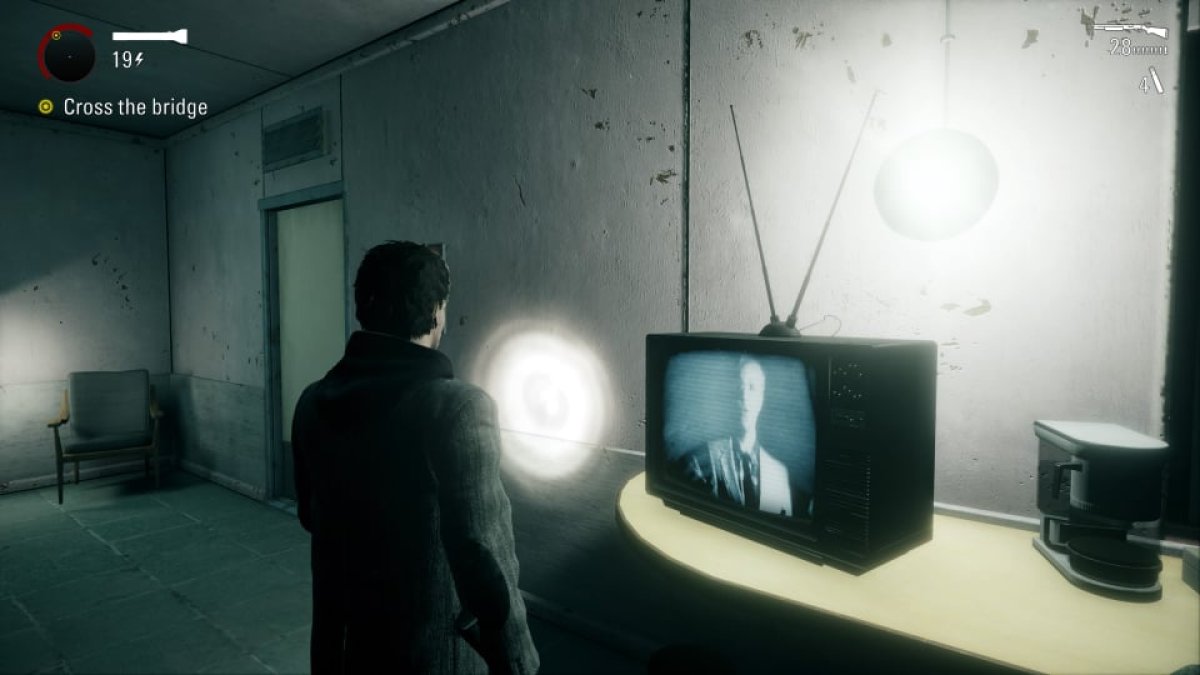After appearing in , Charlton Heston was afraid that by making the film, he had effectively doomed his movie career before it could truly begin. Having starred in movies like Ben-Hur, Planet of the Apes, and The Ten Commandments, Charlton Heston established a well-earned reputation as one of the best actors of the 1950s and 1960s. Heston maintained his status as a leading actor for three decades, playing the main protagonist in multiple films from the 1950s and up to the 1970s.
Unlike some stars, however, Charlton Heston didn't immediately bust onto the scene or take Hollywood by storm the moment he achieved his first major role. In fact, his career hit a huge snag early on, one that had even Heston himself questioning if he would make it as a movie actor. This perceived setback happened in 1950 when Heston made his first Hollywood film, Dark City.
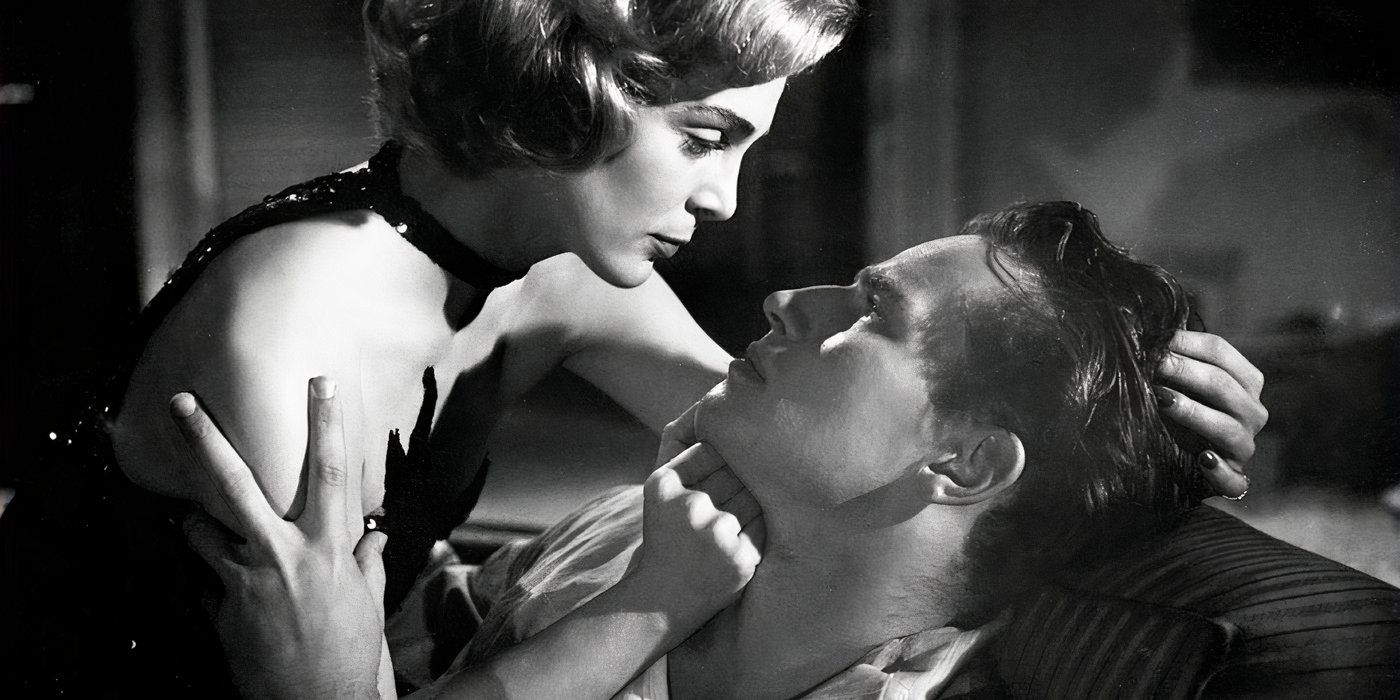
During the late 1940s, Charlton Heston was a stage and TV actor, with much of his work stemming from his appearances in Studio One, an anthology series that aired on CBS. According to Marc Eliot's Charlton Heston: Hollywood's Last Icon, a biography of the actor, one of his performances in Studio One led to a movie contract with Warner Bros., one that he was actually hesitant to accept due to his preference for TV. After much convincing, Heston signed on to star in a film noir titled Dark City, where he played a war veteran-turned-criminal.
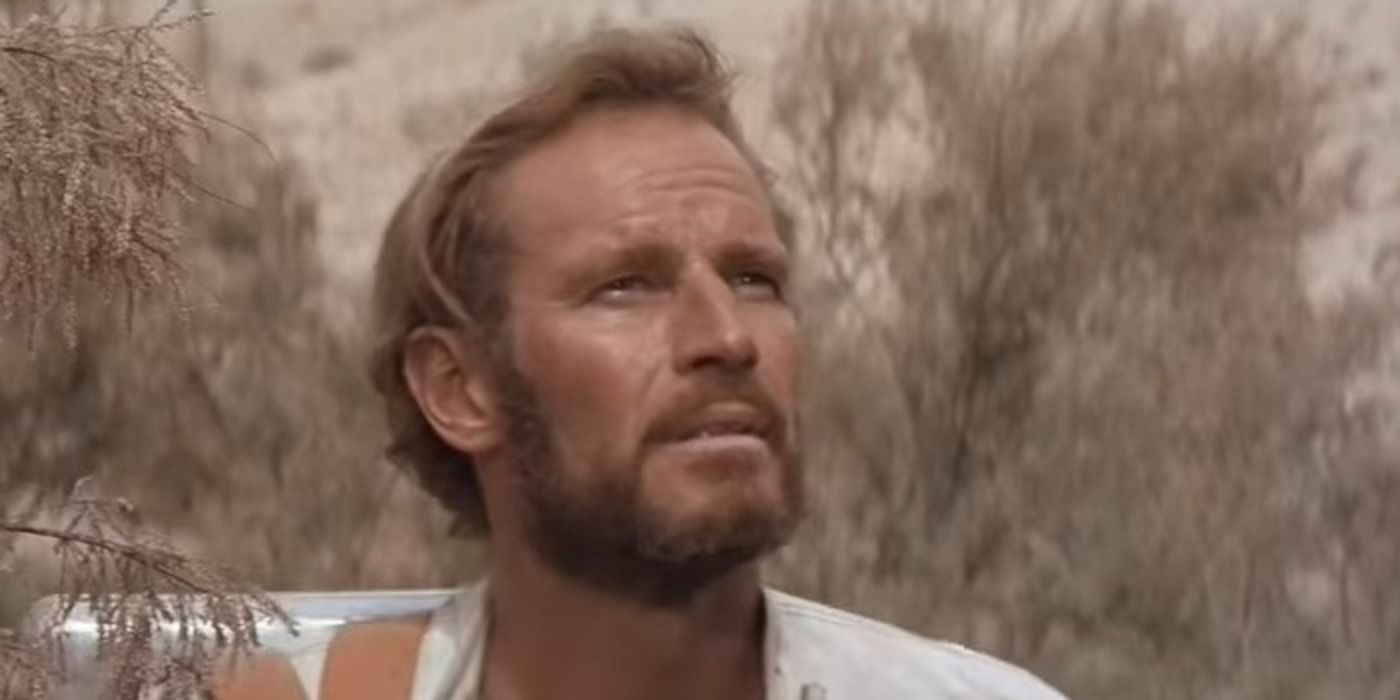
Related
After Planet Of The Apes, Watch This Great Dystopian Sci Fi Movie With Charlton Heston
A much better movie to watch after Planet of the Apes isn't its direct sequel, but a completely different Charlton Heston dystopian movie.
In the movie, Heston's character finds himself in trouble when one of his cohorts develops a grudge against members of their gang and begins killing them off. Directed by William Dieterle, the 1950 film noir holds a 52% rating on Rotten Tomatoes, one that's not too far off from the critical reception it received at the time of its release. It wasn't necessarily considered a bad film, with some reviews giving it positive marks. That said, it didn't perform well at the box office, and Warner Bros.' interest in Heston seemingly died, with his contract being sold to Paramount.
the actor accepted that he was likely done making movies, not believing that he'd be given another chance like the one he had with Dark City again
As Charlton Heston: Hollywood's Last Icon explains, the actor accepted that he was likely done making movies, not believing that he'd be given another chance like the one he had with Dark City again. For that reason, Heston turned his attention back to TV, under the impression that he would have to find contentment with being a small-screen actor.
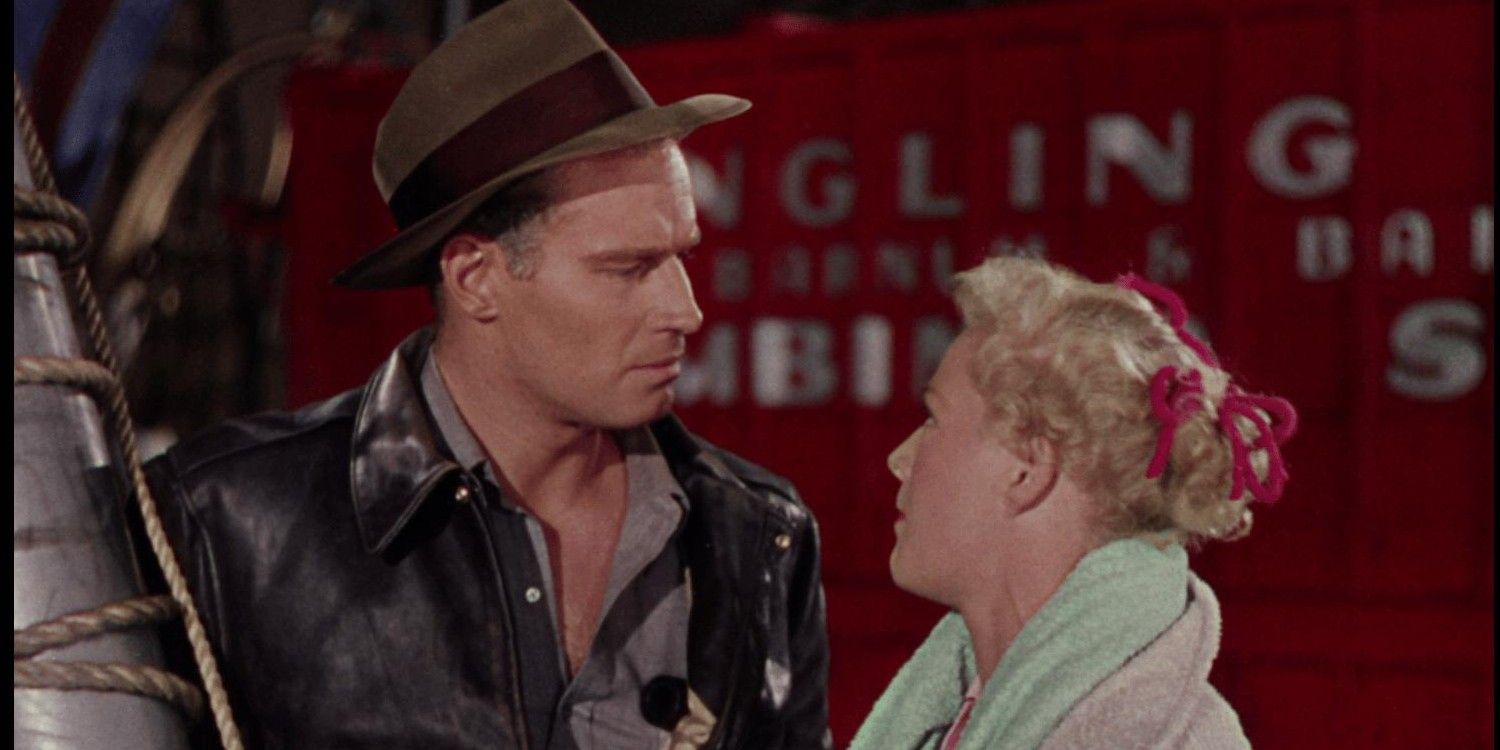
Although Heston wasn't seeking movie roles after Dark City, one found him regardless, as a chance meeting with Cecil B. DeMille (the filmmaker who later directed him in 1950s Biblical epic movies The Ten Commandments and Ben-Hur) led to the latter being impressed with the actor. Eliot writes in his book that DeMille's brush with Heston happened as he was looking for an actor to play the lead role in The Greatest Show on Earth, a circus movie about the Ringling Bros. and Barnum & Bailey Circus.
Heston went from a one-time lead in a forgettable film noir to the top-billed star of a movie that included the likes of Cornel Wilde, Dorothy Lamour, Gloria Grahame, and most impressively, James Stewart.
Hollywood's Last Icon mentions that DeMille didn't enjoy Dark City and wasn't inclined to cast Heston on account of his performance, but ultimately decided to cast him anyway after meeting with him in person. With that, Heston went from a one-time lead in a forgettable film noir to the top-billed star of a movie that included the likes of Cornel Wilde, Dorothy Lamour, Gloria Grahame, and most impressively, James Stewart.
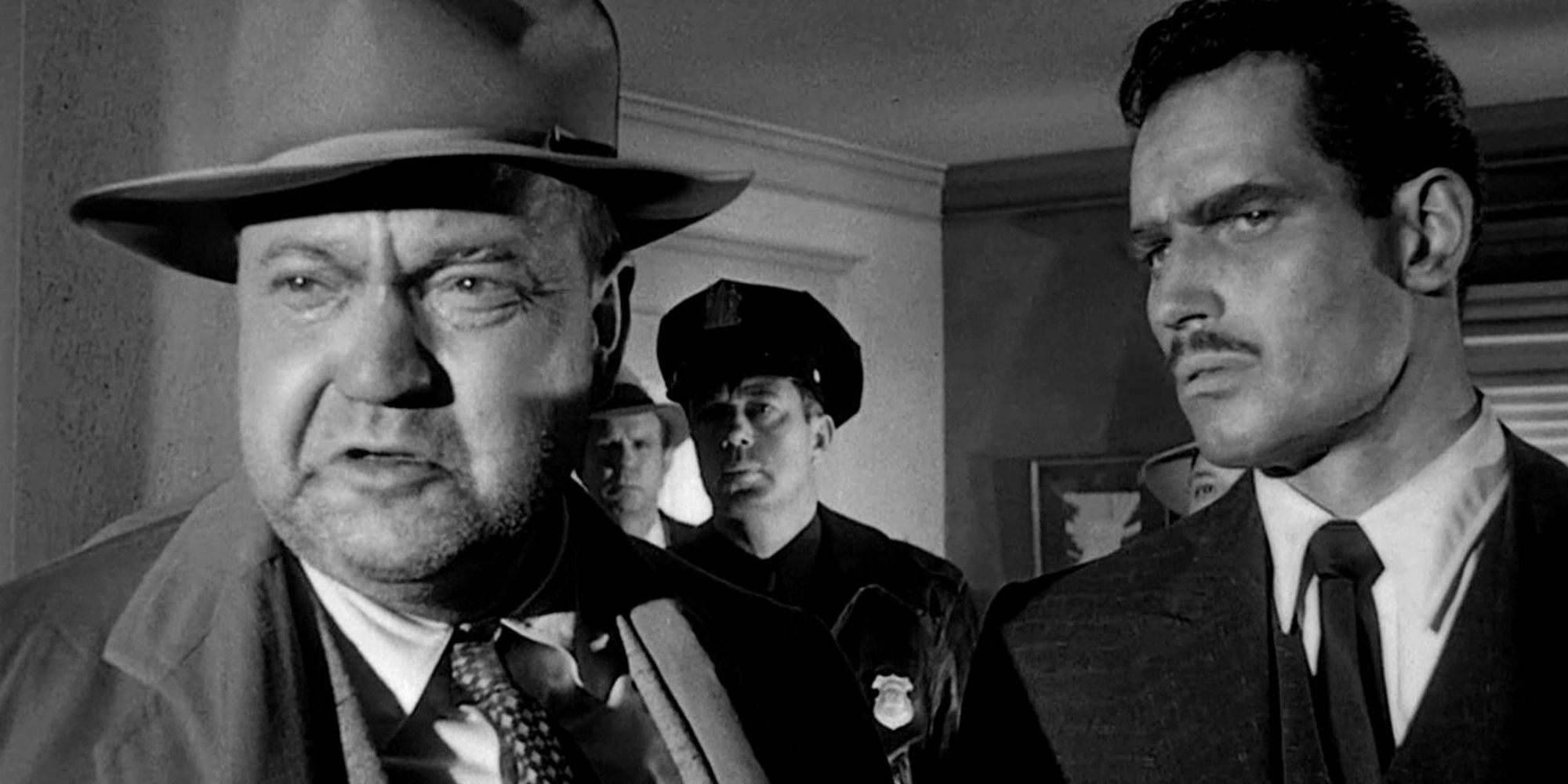
Related
With 97% On RT, Charlton Heston & Orson Welles' Only Movie Together Is One Of The Best Film Noirs Ever Made
In 1957, Hollywood's biggest movie star and the world's most acclaimed director to create a film noir for the ages, in their only project together.
As evidenced by its 50% score on Rotten Tomatoes, its reputation hasn't helped since its release, but it was hugely successful at the time, and even won the Academy Award for Best Picture. The Greatest Show on Earth drastically raised Heston's performance, and though it didn't make him a massive star overnight, it helped erase the memory of and paved the way for Heston and DeMille's most celebrated collaborations.
